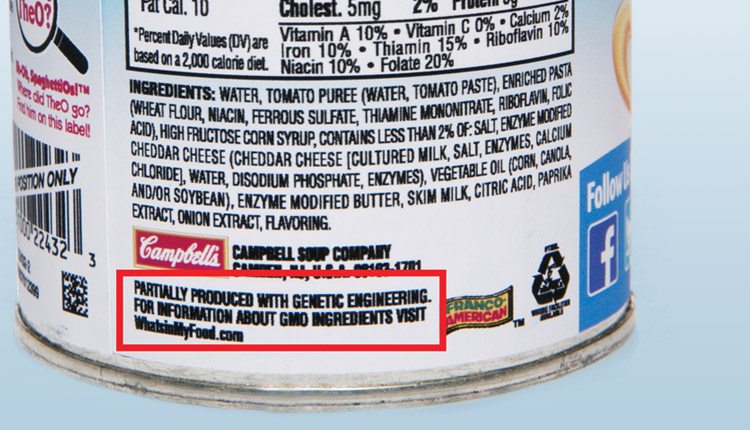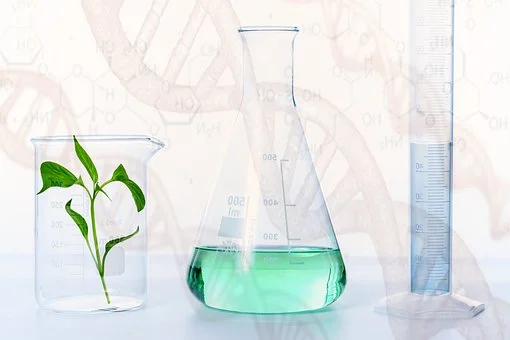With the Vermont GMO labeling law scheduled to go into effect July 1, America’s food industry anxiously awaits federal action.
July 1, 2016 is an important date for the seed industry and every other industry associated with the production of food. On that date, Vermont will implement a law passed in 2014 — the first of its kind in the nation — mandating that food offered for retail sale which is entirely or partially produced with genetic engineering must be labeled as containing such ingredients. Chaos could erupt.
“Vermonters take our food and how it is produced seriously, and we believe we have a right to know what’s in the food we buy,” said Governor Peter Shumlin at the signing of the bill. “More than 60 countries have already restricted or labeled these foods, and now one state — Vermont — will also ensure that we know what’s in the food we buy and serve our families.”
The Coalition for Safe and Affordable Food, a coalition supported by many food industry-related trade groups and food companies, calls the Vermont labeling law “a nightmare scenario come true as the Vermont state government that represents only 600,000 people is now set to dictate food labeling policy to a nation of 300 million — unless the (U.S.) Senate votes to stop the state’s GMO labeling law.”
The group said that food companies are labeling their products sold across the country to comply with the Vermont on-package labeling mandate. That means the Vermont law is “the de facto law of the land,” the group reports on its website. “It is absurd to think that any state has been given the power to determine national food labeling standards – and ultimately the future of American agriculture.”
“The American Seed Trade Association (ASTA) has long advocated for a uniform, national food-labeling solution based on sound science,” says Andrew LaVigne, ASTA president and CEO. “Federal legislation would eliminate the confusion and uncertainty of a 50-state patchwork of GMO labeling laws. Consumers and the food and agriculture community alike deserve consistency and transparency in the marketplace.”
ASTA and many other groups such as the Grocery Manufacturers Association (GMA) have been urging the U.S. Senate to pass legislation that would establish a national food labeling standard. They have had no success.
“Through the use of modern scientific practices and research, seeds enhanced with biotechnology traits have been proven over and over again by a wide variety of credible organizations to be safe for people and the environment,” says Pat Miller, ASTA director for state affairs. “Unfortunately, the unnecessary disparagement of this safe technology is already beginning to impact the market.
“With Vermont’s law looming, some companies have begun to reformulate their products away from GMOs — causing the price of certain commodities, such as cane sugar, to soar. By Vermont’s action and Congress’ inaction, production agriculture will be set back 25 years. We need a national solution to bring certainty to the marketplace. A patchwork of confusing state regulations will only serve to drive up food costs and decrease food availability to the American public.”
Generally Recognized as Safe
GMO foods were approved for human consumption in 1995, but the Food and Drug Administration never required any labels pointing them out as such. Despite a plethora of studies during the past 20 years on the safety of GMO foods, and GE crops, no linkages to health concerns have been found. This reality received further support May 18 when the National Academy of Sciences (NAS) released a report, “Genetically Engineered Crops: Experience and Prospects,” that states GE crops are generally recognized as safe (GRAS).
“We’re pleased the NAS has taken the time to perform a thorough, scientific review of GE crops,” LaVigne says. “Their findings reinforce what we’ve known all along: GE crops are safe.
“ASTA is thoroughly reviewing the study. However, we are concerned that the committee did not sufficiently recognize the role that plant breeding’s long history of safety has played in bringing new and improved seed varieties to the marketplace. The evolution of plant breeding is the foundation of America’s safe, nutritious and diverse food supply. New plant breeding methods build upon our strong history of innovation, and will help meet the challenges faced by agriculture in an efficient and sustainable manner.
“It is imperative that both public and private plant breeders and seed companies of all sizes have the opportunity to employ new and evolving breeding methods in the future, without being hindered by overly-burdensome regulations. Continued innovation and the improvement of breeding methods are paramount to the future of agriculture and our quality of life.”
Pamela Bailey, GMA president and CEO, says that unless Congress passes a uniform national law on disclosure of genetically engineered food ingredients, stigmatization from on-package labels will lead to increased consumer costs and confusion and a paradigm shift in agriculture away from biotech crops.
“Failure to act will have long-lasting adverse effects throughout the food supply chain and will turn back the clock on American agriculture,” Bailey said during the 2016 GMA Science Forum. “The Senate needs to act and act quickly, or farmers may lose access to biotech, more food companies may be forced to reformulate, and consumers will face higher food costs. The time to act is now …”
The March Continues
Despite all of the science that indicates otherwise, a significant segment of consumers continue to believe that GMOs are somehow dangerous. In the world of food marketing, the motto of give customers what they want continues to make good business sense. Two pillars of the food industry, General Mills and Campbell Soup Company, have begun labeling products as containing GMOs in response to Vermont’s new law.
General Mills said in January that ballot initiatives with requirements that differ from state-to-state would result in a patchwork of different labels that would increase the cost of products for companies and consumers alike.
“We do know that some consumers may prefer products made without GMO ingredients,” acknowledges the company. “That’s why General Mills offers … a choice of organic and non-GMO alternatives in most of our major categories in the United States. In effect, the national organic certification and labeling standards enable us to reliably offer consumers non-GMO product choices in all 50 states. We believe consumers looking for non-GMO products would be helped by a national labeling standard for non-GMO products as well … that’s why we oppose state-based initiatives.”
Campbell Soup Company supports a national labeling standard for foods containing GMOs. The company also designed labels for its products in preparation for implementation of the labeling law in Vermont.
“Campbell believes it is necessary for the federal government to provide a national standard for labeling requirements to better inform consumers about this issue,” says Denise Morrison, Campbell president and CEO. “The company will advocate for federal legislation that would require all foods and beverages regulated by the FDA and the USDA to be clearly and simply labeled for GMOs. Campbell is also supportive of a national standard for non-GMO claims made on food packaging.”
Campbell continues to oppose a patchwork of state-by-state labeling laws, which it believes are incomplete, impractical and create unnecessary confusion for consumers, Morrison says.
“Campbell is optimistic a federal solution can be established … if all the interested stakeholders cooperate. However, if that is not the case, Campbell is prepared to label all of its U.S. products for the presence of ingredients that were derived from GMOs, not just those required by pending legislation in Vermont. The company would seek guidance from the FDA and approval by USDA.
Campbell continues to recognize that GMOs are safe, as the science indicates that foods derived from crops grown using GM seeds are not nutritionally different from other foods. The company also believes technology will play a crucial role in feeding the world.”
Morrison notes that the Vermont legislation does not include products with meat or poultry, because they are regulated by USDA. “Under Vermont law, SpaghettiO’s original variety, guided by the FDA, will be labeled for the presence of GMOs, butSpaghettiO’s meatballs, guided by the USDA, will not, “Yet these two varieties sit next to each other on a store shelf, which is bound to create consumer confusion,” she explains.
Laws May Add to Confusion
Everyone in the food chain, from seed producers to growers to food manufacturers and retailers, are likely to be confused as they scramble to meet the requirements of one state’s mandate. The situation will become further chaotic as other states chime in with their own versions of GMO labeling laws.
Nearby, New York may be the next state to adopt a GMO labeling law. A proposed law there faces stiff opposition from various groups. Maine and Connecticut have already passed GMO labeling laws but they will not be adopted until other states in the region adopt similar legislation. Vermont might have tipped the balance.














